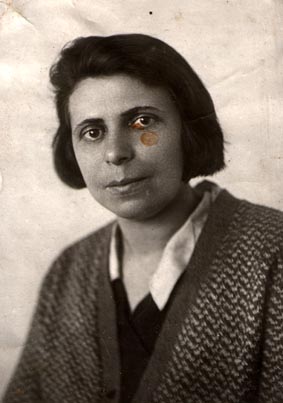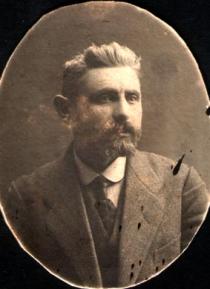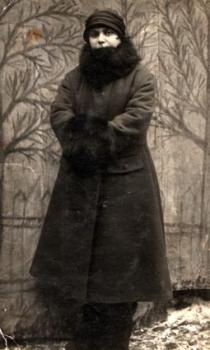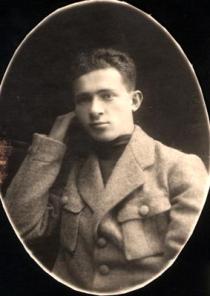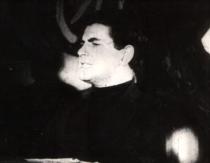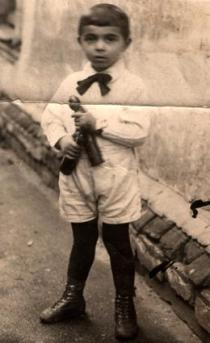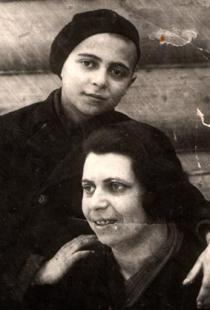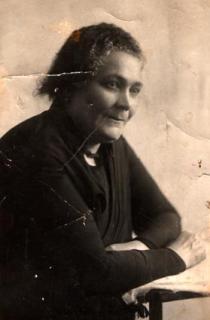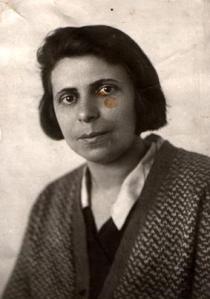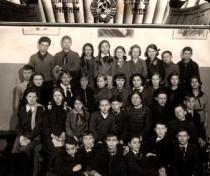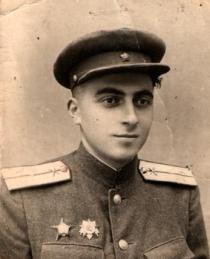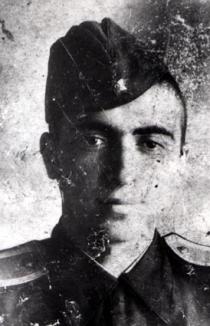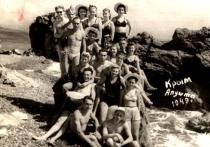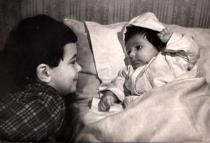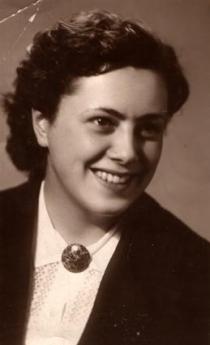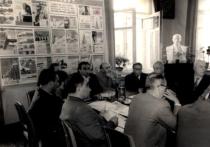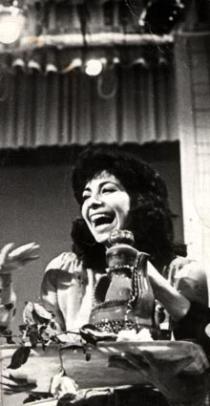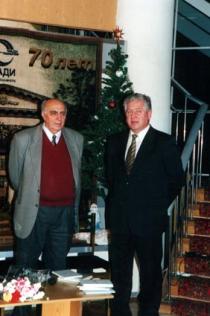This is my, Alexander Tsvey’s mother Sima Tsvey in the year of 1937, Moscow. The picture was made for the honor board, when my mother was working as a supervisor in the Children's Board by All-Union Central Executive Committee.
My mother's family lived in a Jewish town Drissa [now Verkhnedvinsk, Belarus, about 220 km from Minsk. ]. Mother's father Israel Perlov was the most revered man in the Jewish community of the town. I do not know what he did for a living. I did not know my maternal grandmother, not even her first name. Her maiden name was Novik. Grandparents had four children. Haim was the eldest (in Russian Efim), born in 1900. In 1902 my mother Tsilya Perlovà was born. Her Russian name was Sima. After my mother two sons were born: in 1904 Fayvel or Fyodor in Russian and 1907 the youngest Joseph was born. Grandmother died when she was giving birth to Joseph. Of course, it was hard for the widowed grandfather to take care of four small children. When the mourning period was over, he was married to the widow with a child. In 1916 their common child, Mikhail, was born . In 1918 grandfather died. Mother remained a full orphan at the age of 16. She did not even manage to finish secondary school. Mother and her brothers were totally unreligious.
I do not know how my parents met. It was a love wedlock. They had a traditional Jewish wedding. I was born in 1925 in the town Volyntsy. I do not know what was the reason of the tiff between my parents. All I know is that they separated in 1927. My father died from lung tuberculosis in 1927. I do not know where his grave is. Mother did not tell me hardly anything about father.
Mother's elder brother Efim finished vocational school. Then he left for Moscow. He must have insisted that mother also moved with him to Moscow. We had nothing to live on, so mother found a job àt sugar mill as a packager. Her life was extremely difficult, but I never remember her being despondent.
Mother coped with her work and took an active part in social life. She was noticed and then promoted to the post of deputy the regional council [regional administration], though she was not the member of the party. Then mother was hired by the plant as a time-keeper. Again her skills did not remain unnoticed. She was assigned as an instructor to the children's board by BTsIK (All-Union Central Executive Committee). Mother did not work in the children's board for a long time. She had been on the trips all over the country, supervising orphanages and organizing work. I stayed at home with a nanny. Those were the times of hunger. There was a dreadful starvation in Ukraine, there was hunger in Moscow as well. We were famished. A lump of sugar was a rare dainty for me. Couple of times mother got the cards for the canteen for the privileged workers. We had a lavish meal there. I remember when I was in the metro in 1935, I saw a man eating a candy. My eyes looked so hungry and wretched that mother promised to buy me a candy. On Sundays we went for lunch to our relatives, usually to uncle Efim, mother's eldest brother. He was more well-off than others.
In summer mother took me to the dacha [summer house] of her acquaintances. When I was 6, she managed to send me to the children's spa in Crimea. I was afflicted with lung disease because of constant malnutrition. Mother was very worried. She sent me to winter and summer sanatoriums in the forest. Life was hard on mother and I. She often said that she was mother and father for me. Mother left father when she was 25 and she never got married again. She feared that my step father would not treat me the way she would like to. She adored me and I doted on her as well. In 1938 children's board terminated its work and mother went to work in city park as a director.
